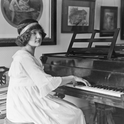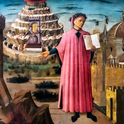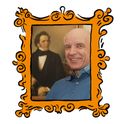“Spartans” and “gladiators” are now part of the self-identification of the alt right. The prime minister Boris Johnson compares himself to Pericles. Classics has become well and truly politicised. But so have appeals to western Christianity, especially in America. Steve Bannon’s plans to found an academy in Italy for “the defence of the Judeo-Christian west and the tradition of western civilisation” (in which he includes Russia) seem to have stalled; but talk of “Judeo-Christian values” has not. They are espoused by President Donald Trump, for one. As a result, the western civilisation courses once beloved of American liberal arts colleges and universities are causing progressive classicists and historians a good deal of discomfort. The role of Christianity in the west is fundamental to the thinking behind such courses, but so is a sense of superiority over other religions—especially Islam. It follows that choosing to defend the importance of western Christianity is a bold move for a historian.
At the same time, the religion and its adherents are under threat from various sources. Christians are fast disappearing from the Middle East, chased out by Islamic State (IS) and other jihadist groups. More prosaically, in the UK the number of regular worshippers in the Church of England is dwindling rapidly. The idea that introducing helter-skelters and mini-golf courses to cathedrals—as happened in Norwich and Rochester this summer—will assist Christian mission must tell us something. Does it indicate the inexorable march of secularism? Or religion reduced to tourism?
*
Is Europe Christian? by Olivier Roy is a very French book. When Roy refers to the Church, he is thinking of Catholicism and devotes some detail to the reforms of the Second Vatican Council in the 1960s and the previous pope, Benedict XVI. He has been mainly known as an analyst of religious radicalisation. In 1992, he argued that political Islam was a failure. But his book Globalised Islam (2003) emphasised the immense variety that exists within Islam as a world religion and argued against any essentialist understanding of it. He now argues that in Europe the cultural turn of Christianity—the process by which the religion has been watered down into a set of ethical ideals—for which he partly blames “self-secularisation” by the Church, has led to a severe crisis of identity. Far from heralding a confident return to “Judeo-Christian values,” Roy thinks that western values are under threat, and with them the concept of a unified and coherent Europe.
Well-meaning bodies like the European Court of Human Rights, he argues, are trying to perform the role that once belonged to the Church. His solution—insofar as he has one—lies in returning “to the foundations of the European project,” to go beyond its bureaucratic systems and back to the fundamentals of European liberalism and what remains of the Christian heritage. Roy sees Europe as the only custodian of Christian values and “the only counterweight to other influences in the world,” by which he must mean Islam.
Tom Holland has already written on Islam in his book In the Shadow of the Sword, and has argued, controversially, that the violence of IS has its origins in the faith’s teachings. Surveying the many wars fought in the name of Christ, one might well conclude that Christianity is also intrinsically violent. His new book Dominion, an invigorating, ambitious and sparkling sweep through the history of western Christianity from the beginning to the present day, avoids the obvious direct comparison but suggests that Christianity has had a far sunnier legacy.
The book’s central question is how “a corpse came to serve as an icon of majesty,” or, differently put, “how a cult inspired by the execution of an obscure criminal in a long-vanished empire came to exercise such a transformative and enduring influence on the world.” His perhaps surprising answer is “love”: one of his epigraphs is taken from the Beatles’s “All You Need is Love.” (The others quote St Augustine and Nietzsche). That God chose the weak things of the world to shame the strong (I Corinthians) is the conclusion that Holland draws from 2,000 years of the religion’s history.
In the opening pages, the author evokes his childhood Sunday School attendance and, in his conclusion, describes the influence exerted on him by his headteacher godmother. He thinks of himself as the inheritor of an “unbroken line to the long-vanished civilisation of the Roman empire.”
This, one might observe, is not only a benign view but also a very western one. Christianity began in the Middle East and spread at first in the eastern Mediterranean, so a history of western Christianity is a partial story at best. This is recognised in Dominion’s early chapters, which provide a gripping account of the formative period before the eastern and western halves of the Church grew apart. But even after that, Christianity has been about much more than its European and North American expressions. We do not hear much either about all that Christianity took from Judaism, or indeed the centuries of Christian hostility towards and persecution of Jews.
In some ways, Holland’s argument resembles that of Roy, in suggesting that Christian modes of thought, and Christian ethics and morality, have passed over into the general culture even as Christian practice declines. Nietzsche, one of the few Europeans who did shrug off Jesus, was right. Even if God is dead, His shadow is everywhere: in the #MeToo movement, in the work of countless humanitarian NGOs, in the annual Women’s March. For Holland, Christianity has no need of actual Christians for its assumptions still to flourish. Its key contribution is its emphasis on the worth of the individual, however poor, weak and oppressed, a set of values that he argues is breathed in from the air like dust particles. Without Christianity, Holland says, “no one would ever have got woke.”
*
Larry Siedentop made a similar, but even stronger, claim in his book Inventing the Individual (2014), in which he argued that Christianity is the ultimate source of western conceptions of the individual and human rights. For Siedentop, as for Holland, the notion of a secular sphere also derives ultimately from Christianity, specifically from Augustine’s City of God, with its conception of two cities—the secular and the religious, Athens and Jerusalem. Secularism should certainly not be equated with dechristianisation or even more especially with the strident atheism of Sam Harris and Richard Dawkins. Rather, in Siedentop’s words, the division of church and state is Christianity’s “gift to the world,” in that it has made human reason and individual conscience the basis of moral choice; it is therefore the very foundation of liberalism. Some expressions of Christianity, whether among conservative evangelicals now or Catholic inquisitors in the late Middle Ages, distort this moral heritage, but they do not, in the minds of Holland and Siedentop, undermine the religion of love.
A sceptic might observe that early Christianity was not all that egalitarian. When St Paul wrote that all were equal in Jesus Christ, Jew and gentile, male and female, slave and free, he did not mean that slavery should be abolished, or patriarchy dismantled. Both continued and were endorsed by Christianity for many centuries. (Even though Christians were important among the abolitionists, the reasons for the eventual outlawing of slavery were complex.) The early Christians were not drawn only from the lower classes, and all too soon an authoritarian hierarchy of bishops developed, together with strenuous efforts to keep the faith pure—or rather to control it—by labelling and proscribing those of whom they disapproved. Hostility to the idea of women priests and bishops continues to this day.
It is true, as the historian Peter Brown has insisted, that late antique Christians paid a new attention to the poor and needy, and made the wealthy the targets of fierce moral critique. But mixed motives abounded and, as Brown has also shown, this stance could lead to a deep ambivalence towards wealth. Nor did it prevent the Church from amassing huge amounts of money. Even in the early centuries, Christianity was not invariably benign.
Holland’s characterisation of its legacy as “love” is therefore striking for its optimism. It suggests the same nostalgia for that childhood world of the Sunday School that lies behind his claims that John Lennon’s atheist hymns and the inspiration of Live Aid were both unmistakably Christian, or that the story of Nelson Mandela is one of the great dramas of Christian history, as well as his telling inclusion of Dawkins’ tweet that the sound of cathedral bells is “so much nicer than the aggressive-sounding ‘Allahu Akhbar’ [sic].”
Holland says that the argument of his book really took shape when he visited Iraq and saw how crucifixion, the paradoxical beginning of Christianity, had been used by IS. It’s not hard to see this book as an implicit rebuke to the religion now shadowing the west. Nonetheless, Dominion deals only briefly with the impact of Islam. It is certainly one of the biggest issues we face today—both in terms of radical Islamism from 9/11 onwards, and the way western governments deal with migration. It looms large over all discussions of the Christian inheritance of Europe. The adoption of the names of the Beatles by Jihadi John and his fellow western converts attracted a protest from Ringo Starr. “What they are doing out there is against everything the Beatles stood for,” he complained. “The four of us absolutely stood for peace and love.”
The west is struggling; it has not yet found a way to understand Islam from the inside or to bring it within its self-understanding. The religious demography of the west is changing even as governments and right-wing politicians take extreme measures to keep out migrants taking terrible risks to get to Europe. Meanwhile, as Holland memorably argues here, post-Christians and anxious liberals cling to a myth of equality and love, and to the idea of a world in which justice will prevail, the rights of the individual will be respected and the weak will shame the strong. These myths do not need to be false, he explains. Let’s hope he is right.
Averil Cameron was professor of Late Antique and Byzantine History at the University of Oxford













